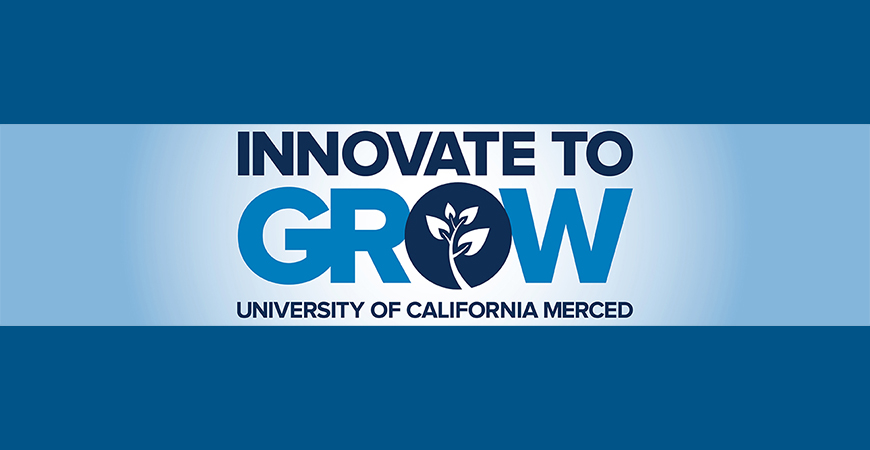
UC Merced’s premier experiential learning expo, Innovate to Grow (I2G), is providing students, faculty and staff with a new set of experiences to learn from this year, as the event continues in a virtual format to comply with pandemic safety guidelines.
“Our students, faculty and staff have adapted amazingly well to the changes the campus has had to make to keep safety as our top priority,” School of Engineering Dean Mark Matsumoto said. “The student teams participating this year have faced unprecedented challenges, and yet they continue to innovate, persevere and showcase the world-changing work engineers can accomplish together.”
I2G launched in 2012, bringing to life an idea outlined on the back of a napkin by the former dean of engineering. It started as an annual event and is now held in fall and spring to highlight the projects on which hundreds of students collaborate.
Each semester, engineering students design novel solutions and technologies to meet their community partners’ needs, benefitting the region, the state and the world.
On Friday, Dec. 18, between 11 a.m. and 2:30 p.m., 40 teams will present their projects from the school’s signature undergraduate experiential design classes:
- Engineering Capstone, the culminating course for senior engineering majors, in which the students work with industry partners;
- Engineering Service Learning, the cornerstone program focused on serving non-profit organizations in the community; and
- Software Capstone, the course for computer science students in which they work on projects with industry partners.
Projects address challenges in agriculture, food processing, water, energy, health care, medical devices, finance, transportation, construction, materials, information technology, networking and more, and can result in new systems or processes for operations or industrial plants, prototypes for new products, new software applications or system improvements, or studies and prototypes for government labs or nonprofits in the region.
“Students gain real-world experience and skills that will carry them into their future careers, while partner organizations get the benefit of process improvements or new products,” said Stefano Foresti, director of innovation for the School of Engineering. “Several of the past teams’ innovations have turned into jobs and entrepreneurial opportunities for the students.”
Because I2G is virtual this year, people from all over the world have the opportunity to attend via Zoom. They can watch presentations in any of the event’s seven different tracks: AgTech, Food Processing, New Products, Energy, Service Learning, Business Problems and Software Problems. The team presentations are evaluated by judges, and each track will have a winner.
People are asked to register if they plan to attend. On the event’s main website, people will find a schedule of the day’s presentations and can click on any of the team numbers to learn more about the students and their projects.
The webpage will have the Zoom link, and people can join any “room” they choose. Spectators’ microphones are automatically muted so the presenters will not be interrupted. At the end of each presentation, the teams will take some questions through Zoom’s chat function — though the judges’ questions take priority.
The winners will be announced by 4 p.m. Dec. 18 on the event’s website.



